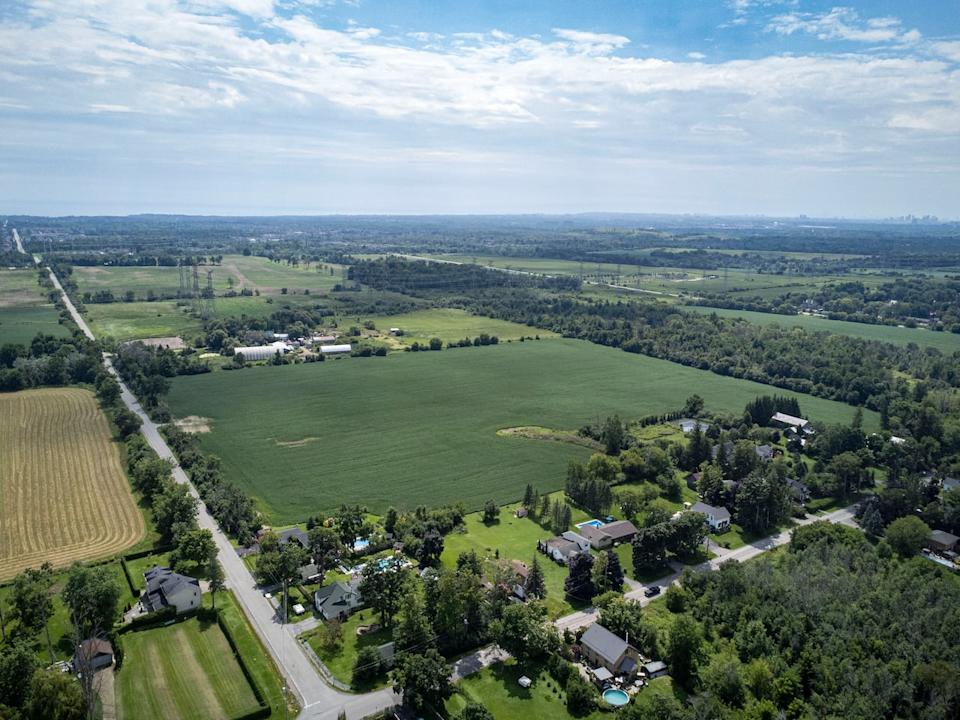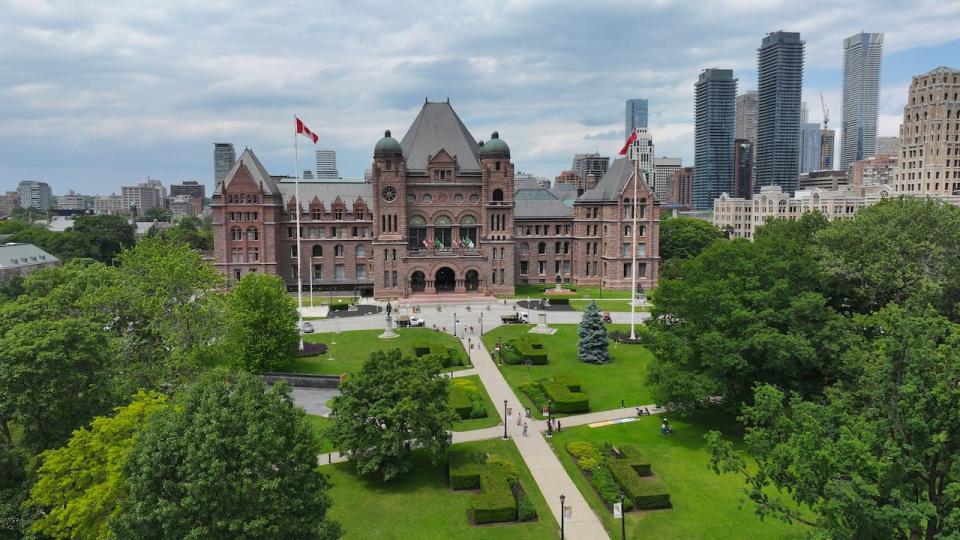2 polls suggest Ontario Greenbelt saga eroding Doug Ford's political support

The swirling controversy over how Premier Doug Ford's government removed protected land from Ontario's Greenbelt to build housing is weakening voter support for the premier and his Progressive Conservative party, according to a pair of new opinion polls released this week.
Both polls — one conducted by the Angus Reid Institute and the other by Abacus Data — show recent drops in approval for Ford and the Progressive Conservatives. Pollsters for both firms believe the Greenbelt saga is a key factor.
"The Greenbelt has been the issue that has dominated headlines over the last several weeks," said Shachi Kurl, president of the non-profit Angus Reid Institute.
"It's hard to decouple that from these findings."
The Ford government is reeling from two separate but equally scathing watchdog reports that slammed the way the government gave privately-owned land on 15 sites in the Greenbelt the green light for housing development.
Kurl says this is the kind of political controversy that has the potential to resonate strongly with voters.
"It's less about the ideology of taking land out of the Greenbelt or the ins and outs of an intricate policy issue," Kurl said Friday in an interview with CBC Toronto.
"It's more about the whiff of friends and insiders getting preferential treatment, and that is something that really annoys people in this country."

Shachi Kurl, president of the Angus Reid Institute, says 'the whiff of friends and insiders getting preferential treatment' in the Greenbelt controversy has a greater impact on public opinion than the government's decision to remove land from the protected area. (Richard Marion/Radio-Canada)
The Angus Reid Institute tracks approval ratings for all of Canada's premiers every three months. Its latest poll, conducted over the past week and published Friday, put Ford's score at 28 per cent. That's a drop of five points since the previous survey in June and it's the lowest Ford's approval rating been since he was first elected in 2018.
"It's rare to see that significant a drop in approval over a three-month period," Kurl said.
She said it's notable that the bulk of Ford's loss in approval came among respondents who had voted PC in the last provincial election.
"When you've got past Conservative voters saying, 'We're not very happy with him,' that's a sit-up-and-take-notice moment," said Kurl.
The Abacus Data poll, conducted over a week starting Aug. 29 and released Tuesday, found the PC party with the support of 34 per cent of committed voters, down seven points from the firm's previous Ontario politics survey in mid-July.
That's a sharp drop that rarely happens over such a short period of time, said Abacus president David Coletto.

The largest section of land that the Ford government removed from the Greenbelt last year is the Duffins Rouge Agricultural Preserve around the hamlet of Cherrywood, located in Pickering, Ont. (Evan Mitsui/CBC)
"What's clear from our polling, and from the Angus Reid Institute polling, is that even Progressive Conservatives, a sizeable number of those who voted for Doug Ford, say this [Greenbelt controversy] stinks," Coletto said Friday in an interview.
He said Abacus polling has found a substantial rise in voter perception that Ford is making decisions for the best interest of his friends and supporters rather than the province as a whole.
"It goes against that core brand that [Ford] has built over time that says, 'I'm fighting for the little guy,'" said Coletto.
"In this case, I think people are concluding, 'No, you were helping the big guys who made a lot of money off a decision your government made.'"
Despite the apparent drop in voter support for Ford, both polls found neither the opposition Liberals nor NDP have gained enough ground to overtake the PCs.
"If an election were held in the near future, we'd still be looking at a PC majority," Kurl said.

Despite what the polls found about a drop in support for Ford, both polls still show the opposition New Democrats and the Liberals trailing the PCs. (Patrick Morrell/CBC)
After vowing throughout his first term in office that he wouldn't touch the Greenbelt, Ford reversed course last November and announced the government was lifting environmental protections on land at 15 hand-picked sites to allow the construction of 50,000 homes.
CBC Toronto was first to report who owned the properties, a list that included developers with close ties to Ford or the PC Party.
Last month, Ontario Auditor General Bonnie Lysyk found developers heavily influenced the selection of those sites, and estimated that the government's move boosted the value of the lands by at least $8.3 billion.
A report by Ontario Integrity Commissioner J. David Wake on Aug. 30 found the process for selecting the properties was "seriously flawed." He laid out in detail how specific developers and lobbyists deduced that the Ford government was poised to remove land from the Greenbelt.
Wake said it all led to Ford's cabinet making what he called "an uninformed and opaque decision which resulted in the creation of an opportunity to further the private interests of some developers improperly."
Both reports showed that developers, their lawyers or their lobbyists were in contact during September and October of 2022 with the chief of staff to then-minister Steve Clark about their Greenbelt properties, well before the government made any public announcements about its plans.
Clark resigned on Monday, and Ford appointed Paul Calandra to take his place.
Ford has since announced the government will re-evaluate the lands that were removed from the Greenbelt as part of a wider review of all Greenbelt lands. Calandra has said that review could result in even more land removed from protected status.
The Angus Reid Institute commissioned and paid for its poll. It was conducted online from Aug. 31 to Sept. 6 among a representative, randomized sample of 799 Ontario adults. For comparison purposes only, a probability sample of this size would carry a margin of error of +/- 3 percentage points, 19 times out of 20. Full results are here.
Abacus Data commissioned and paid for its poll. It was conducted online from Aug. 29 to Sept. 4, with 2,003 eligible voters in Ontario. A random sample of panelists were invited to complete the survey. The margin of error for a comparable, probability-based random sample of the same size is +/- 2.2%, 19 times out of 20. Full results are here.


